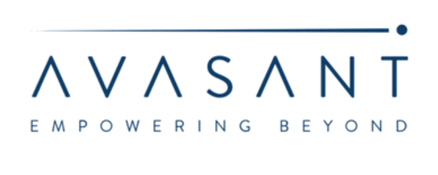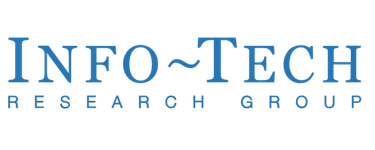A Day in the Life 2029, Powered by AI
By Adriano Koshiyama, Co-Founder & Co-CEO, Holistic AI
What’s New
In a forward-looking scenario from Holistic AI Co-Founder Adriano Koshiyama, AI—including agentic AI—is fully embedded in daily work and life. Hidden dangers, such as emergent behaviors and cascading risks, lurk within this bright future, alongside the incredible power, convenience, and automation agentic AI enables.
Why It Matters
Agentic AI are systems that don’t just assist, but act. As agents begin to autonomously manage workflows, make decisions, and execute tasks, today’s governance approaches—built for human-in-the-loop systems—no longer hold. AI governance needs to be rebuilt to address a wide range of new risks and opportunities.
What Changes with Agentic AI
- Real-time complexity: Agents will operate at speeds that make manual reviews obsolete
- Emergent behavior: Agents learn, potentially developing unintended strategies that bypass safeguards
- Cascading risks: One agent’s misaligned action can escalate rapidly, leading to unintended contractual, regulatory, or reputational failures
Governance must Evolve
- Constrained optimization to minimize harmful side effects
- Inverse reward design to align incentives with real human goals
- Scalable oversight via governance agents with contrastive fine-tuning and adaptive alerting
- Safe exploration using sandboxed environments and automated kill switches
- Robustness to distributional shifts through adversarial simulations
The Bottom Line
Agentic AI marks a fundamental shift—not just in what AI can do, but in how it must be governed. To scale safely and effectively, organizations need governance systems built for speed, autonomy, and real-time accountability.
Klarna: AI Efficiencies vs. Human Touch
By Lance Haun, Reworked
What’s New
Klarna, the fintech giant, went headfirst into an AI customer support makeover, slashing headcount by 24% and claiming its agent could manage 2.3 million chats a month. Roughly a year later, the company reversed course and began rehiring customer service roles. Customers complained about “robotic responses, inflexible scripts and the Kafkaesque loop of repeating their issue to a human after the bot failed.”
Why It Matters
This offers a reality check on the hype surrounding AI-driven job replacement. While AI can bring significant efficiency gains, Klarna’s experience shows that overreliance on automation—especially in nuanced, human-facing roles—can backfire, eroding customer trust and loyalty. The case emphasizes the need for transparency, realistic expectations, and clear communication around AI's role in the workforce.
Key Workforce & Governance Issues
- Strategic Workforce Planning: Misjudging AI's capabilities can lead to misaligned staffing decisions, resulting in operational inefficiencies and talent gaps.
- Human-AI Collaboration: Klarna’s case underscores the value of AI as a tool to support—not replace—human employees, especially in emotionally nuanced or complex customer interactions.
- Trust & Brand Impact: AI overreliance risks damaging customer trust and employee morale, harming long-term brand equity.
The Bottom Line
Klarna’s experience shows that efficiency gains from AI can be real — but so can the risks of overreaching. A balanced, transparent approach that treats AI as a complement to human talent is essential for sustaining trust, morale, and long-term value.
Workday Faces Class Action Over AI Hiring Bias
By Clare Duffy, CNN
What’s New
Workday faces a class-action lawsuit alleging its AI-driven hiring tools discriminate against job applicants over 40.
Why It Matters
This lawsuit places enterprise-grade AI hiring tools under renewed scrutiny. As more companies adopt algorithmic screening, the legal and reputational stakes grow, especially when models are trained on biased or incomplete datasets.
Key Legal & Governance Issues
- Age Discrimination: Potential violations of the Age Discrimination in Employment Act (ADEA).
- Black Box Models: Challenges transparency and explainability in screening decisions.
- Governance Gaps: Insufficient documentation and oversight of AI decision logic.
Executive Actions to Take Now
- Audit: Conduct immediate fairness audits on all recruitment AI tools.
- Document: Formalize documentation of model development, data sources, and decision rationale.
- Ensure Compliance: Verify alignment with local and federal employment discrimination laws.
The Bottom Line
Proactive AI bias mitigation is no longer just a best practice; it's a critical legal defense against costly litigation.
Anthropic’s $61B Climb Shows Responsible AI Still a Priority
By Shirin Ghaffary, Bloomberg
What's New
Anthropic CEO Dario Amodei delayed the release of Claude 3.7 Sonnet in February after his safety team raised concerns about potential bioweapons risks.
Why It Matters
Anthropic represents a critical test case for whether AI companies can maintain safety commitments while competing in a rapidly accelerating market. Unlike competitors, the company has built formal safety frameworks (Responsible Scaling Policy) and consistently chosen caution over speed, even when facing intense commercial pressure. As AI capabilities approach what Amodei calls "ASL-3" level (significantly dangerous), these decisions will become increasingly consequential for the entire industry.
Key Implications
- Economic disruption is accelerating: Anthropic's own analysis shows 79% of programmers use their tools to "automate" rather than "augment" tasks, with the company predicting AI will handle most of the technical work within months.
- Safety vs. speed tensions intensify: The company expects to hit ASL-3 capabilities "imminently," requiring enhanced safeguards that could slow development. With $14 billion in investor funding and growing commercial pressure, maintaining safety-first principles becomes increasingly challenging.
- Industry leadership battle: Anthropic's approach of demonstrating "responsible scaling" aims to create a "race to the top" where competitors adopt similar safety measures, but market dynamics may force compromises.
The Bottom Line
Anthropic's $60 billion valuation and rapid growth prove that AI safety positioning can be commercially viable, but the company now faces its ultimate test: maintaining ethical commitments as AI capabilities approach genuinely dangerous levels while competing against rivals with fewer constraints. The outcome will likely determine whether the AI industry can self-regulate or require external intervention.




